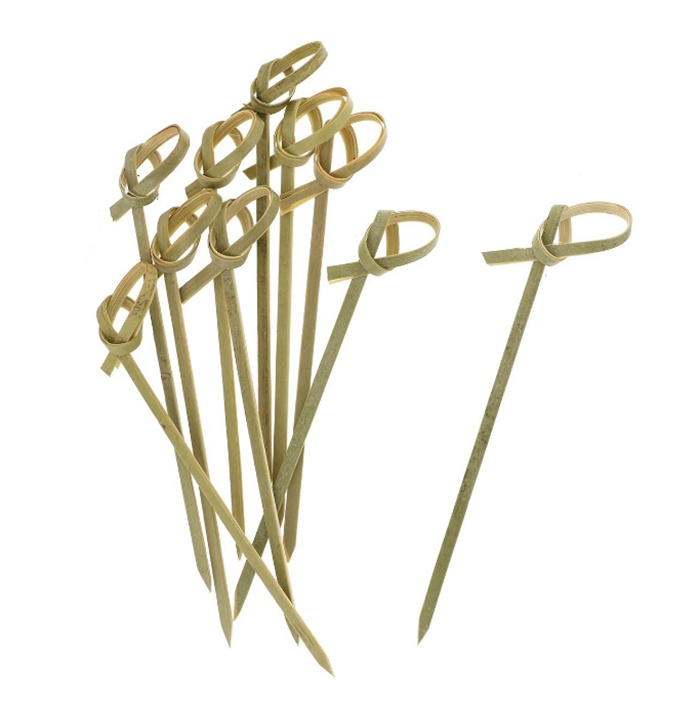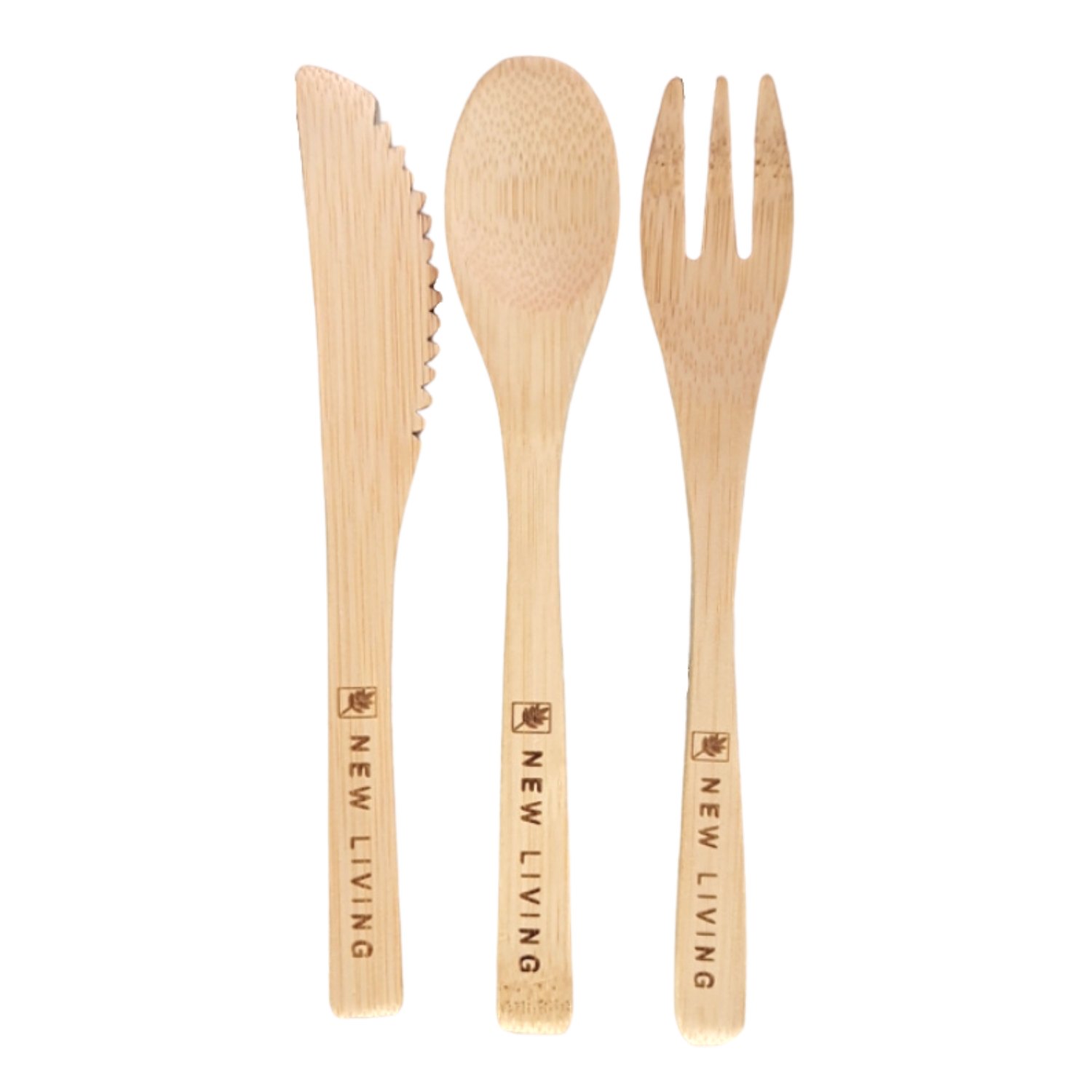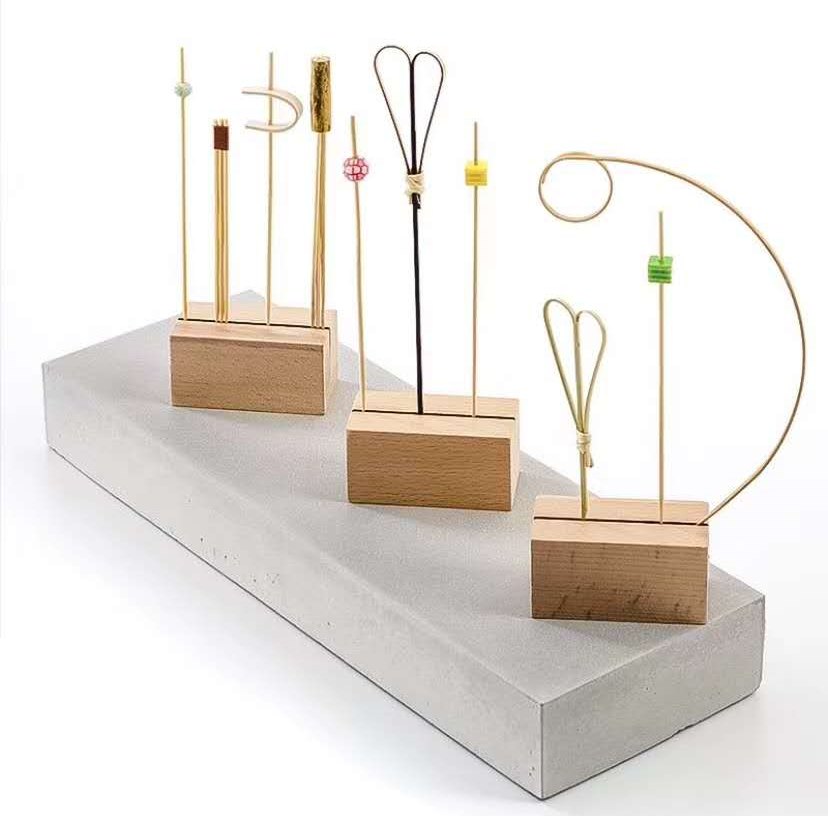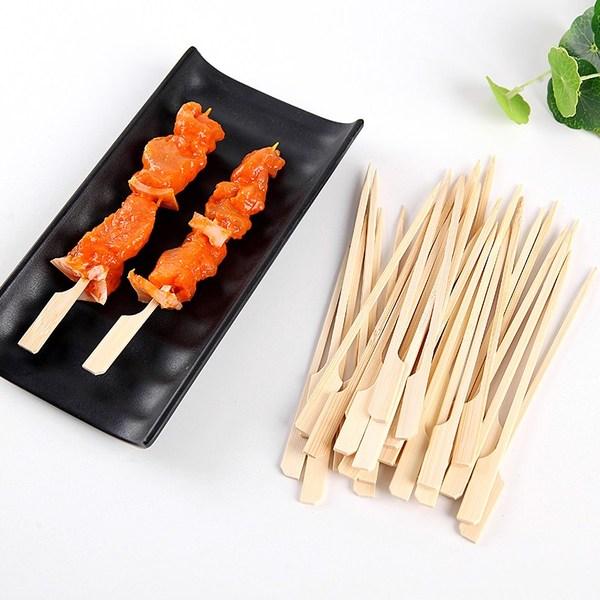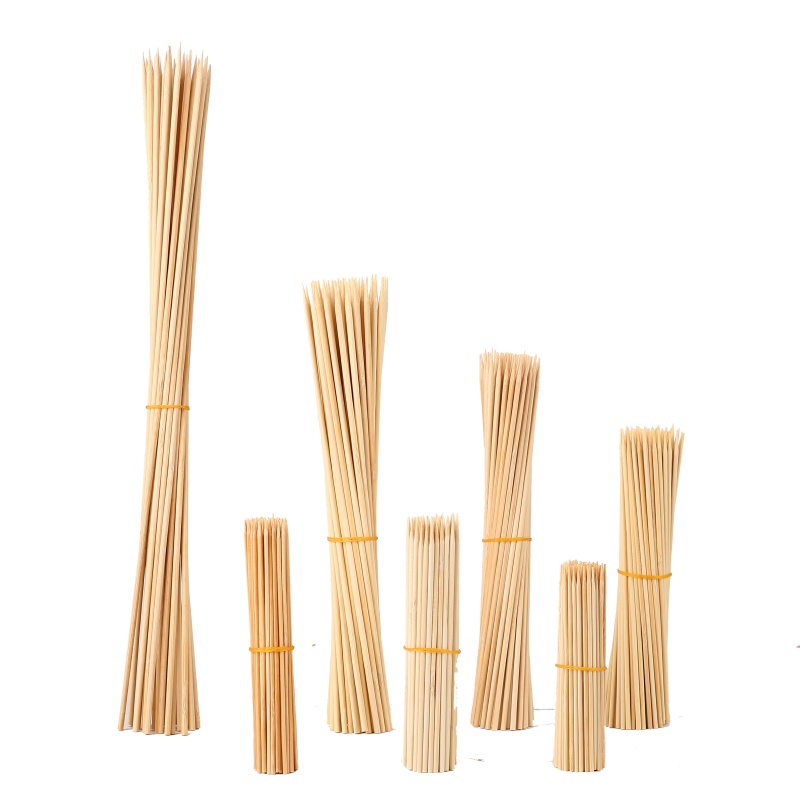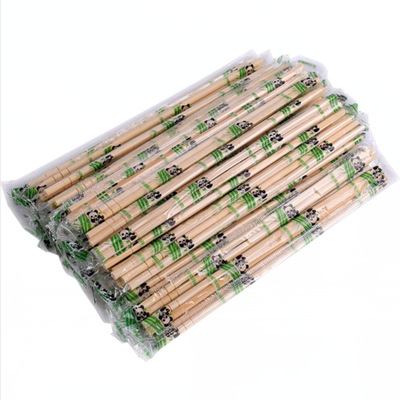Bamboo is a fast – growing grass (not a tree), and its stalks (called “culms”) have a unique, hollow – like internal structure with tiny pores. When processed into skewers:
- Porosity = High Flammability: Those small pores act like sponges, absorbing very little moisture naturally and drying out quickly after production. This is why dry bamboo skewers ignite so easily on the grill (where temperatures reach 350–500°F/175–260°C). As we discussed earlier, soaking fills these pores with water, creating a barrier against heat and preventing rapid burning or charring.
- Natural Dryness = Splinter Risk: Bamboo’s inherent dryness (even in “fresh” skewers) makes its fibers brittle. When you pierce firm food (like raw chicken or zucchini) with a dry skewer, the fibers can split, leading to splinters in your hands or food. Soaking softens these fibers slightly—making the skewer more flexible without compromising its strength—directly addressing the splinter risk tied to bamboo’s plant – based rigidity.
Bamboo’s malleability allows manufacturers to create skewers in a range of lengths and thicknesses, each suited to specific cooking needs—all while staying true to its lightweight, food – friendly nature:
- Thin Skewers (3–4mm diameter, 6–12 inches long): Made from the slimmer, younger parts of bamboo culms, these are perfect for small – batch snacks (e.g., fruit skewers, mini appetizer kebabs) or delicate foods (e.g., shrimp). Their thinness means they dry out faster, so they require the full 30 – minute minimum soak we recommended to avoid burning.
- Thick Skewers (5–6mm diameter, 12–18 inches long): Crafted from thicker sections of mature bamboo, these are sturdier for heavy loads (e.g., large meat cubes, whole mushrooms). Their greater density means they hold more moisture once soaked—but they also need longer soaking time (1–2 hours, as noted earlier) to ensure water penetrates all the way through their thicker fibers.
- Extra – Long Skewers (24–30 inches long): Often made from the longest, straightest bamboo culms, these are used for grilling large items (e.g., whole fish fillets, giant kebabs for a crowd) or roasting over open fires (e.g., marshmallows for s’mores). Their length means more exposed surface area to burn, so wrapping the unloaded ends in foil (a trick we mentioned for forgotten soaks) is especially useful here, even if you’ve soaked them.
One of bamboo’s biggest perks is that it’s biodegradable: unlike plastic skewers, used bamboo skewers can be composted (as long as they’re free of food residue) or discarded without harming the environment. However, this eco – friendly trait doesn’t override safety. Even though bamboo is natural, burnt or charred bamboo (from unsoaked use) can still impart bitter flavors to food or release smoke—wasting both the skewer and your meal. By following soaking and grilling best practices, you get the best of both worlds: a sustainable tool and safe, delicious food.

